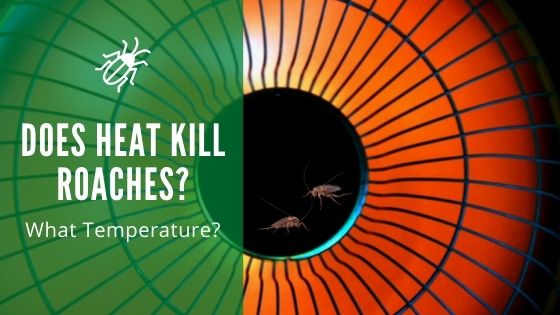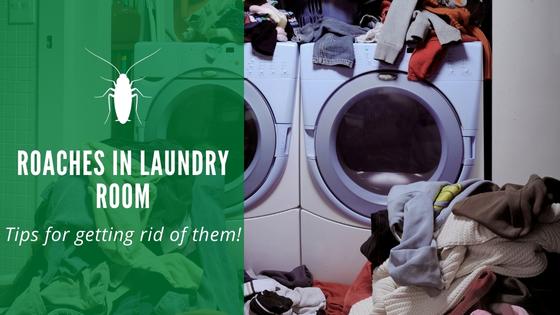Does Heat Kill Roaches? What Temperature?

While they might be able to withstand the force of a nuclear bomb, studies show that cockroaches might not be able to handle the heat of one… or even heat at all. While pesticides are designed to target a cockroach’s nervous system, they can be dangerous to pets, babies, and even humans if not applied correctly.
A new form of pest control is focused on using heat to turn buildings into temporary ovens, and it has several advantages over traditional ways of killing bugs. You may already be familiar with bed bug heat treatment, but does it work so well against a cockroach infestation?
How Much Heat Can A Cockroach Withstand?
Cockroaches are sometimes resistant to pesticides, drowning, and even decapitation… something that not many other bugs can withstand. However, even their durability has a melting point. Cockroaches are cold-blooded, meaning they take on whatever temperature is around them, and if the temperature rises, so does theirs.
What Temperature Kills Roaches?
Cockroaches start to sweat right around 30 degrees Celsius or 90 degrees Fahrenheit and will die at about 50 degrees Celsius or 122 degrees Fahrenheit. At these temperatures, roaches will die in minutes.
Does Dryer Heat Kill Roaches
You can get this type of heat from only a few places; for example, a dryer gets to around 125-135 degrees Fahrenheit, and that’s enough to kill cockroaches. If you have any on your clothes or suspect that any have found their way into your laundry basket, then chuck the whole thing into the dryer and know that roaches will not survive.
How Does Professional Heat Treatment Work?
Roach heat treatment machines are very complex devices designed to eradicate an infested home quickly. This system looks like something out of the future, with heat exchanges, several pipes, and a mobile boiler to bring the air in an empty house or building up to a deadly temperature for cockroaches.
fuIt also uses thermostats and cameras to seek out any cold spots to ensure every area of the house is heated up. The heat doesn’t just kill all types of roach species, but it does so regardless of where they are in the lifecycle. It doesn’t matter if they are fully mature adult roaches or just laid eggs; they will all be burned within minutes.
Heat treatment can get to areas normally impervious to other forms of pesticide or fumigation, and it can do it much faster. Plus, the heat is only applied for a short time, not long enough to do a lot of damage to the surrounding area. Most of the furniture and other items in your home will be left unharmed, and only the cockroaches will be damaged. The temperature change shock kills the cockroach because they don’t have enough time to adapt to it; instead, they die.
Using A Heater
Whenever the professional company comes over and places the heater, they typically place it in one room. After turning it on and allowing it to reach the desired temperature, heat convection currents are created.
Heat convection currents are the scientific term when heat moves from room to room, typically along air currents that transfer the heat from a warmer to a colder environment. The heat goes from room to room and raises the temperature, killing cockroaches and cockroach eggs without any trouble. Plus, you don’t need to turn the heater off, wait for the room to cool down, and then walk the heater to another room.
Advantages Of Professional Heat Treatment
Unless you plan to make your own pesticides yourself using natural ingredients such as essential oils, boric acid, or other ingredients, heat is one of the only truly organic pest control treatment methods. No damage or danger to children or pets, and effective killing of cockroaches and other bugs.
Plus, heat can even be an effective killer of disease, getting rid of viruses and bacteria that can infect your home.
If it’s virus season, then a heat treatment can kill two birds with one stone and not only make your home pest-free but healthier as a result.
Additionally, heat treatment is fairly quick. Instead of spraying pesticides, laying traps, and hoping that the cockroaches will take the bait, you can have this treatment done. You know that the cockroaches and their egg cases will die within minutes. At 130 degrees, most cockroaches are dead and gone after just seven minutes.
Cool Down Your Expectations
However, this isn’t a perfect system. While it can kill roaches and other pests like bed bugs, it sometimes has problems with killing creatures inside a mattress. If you are using this to kill bed bugs, you might have a real problem with the mattress getting hot enough to kill them. Here are a few tips for increasing the heated airflow around your mattress when attempting a heat treatment (Tips).
Plus, you also need to find a good company to perform the heat treatment, which can be tricky. Make sure to do your research, look for good reviews, and see how long the company has been in business. Also, take a look at what their process is, so you can see how long the treatment will take.
These problems are scenario-based, but they can happen. However, if you want to kill cockroaches without too much trouble, professional heat treatment is one of the best ways. We also recommend using more traditional methods for getting rid of roaches like boric acid, diatomaceous earth, and gel bait.
If you are sick of cockroaches resisting your every attempt to kill them, then perhaps using a professional heat treatment is enough to do so. Contact the 24-hour pest control service hotline and see what type of treatments are available in your area, and see how they can get those cockroaches out of your home once and for all.
Sources:
https://www.greentechheat.com/1808-1-heat-treating-a-mattress-for-bed-bugs.php



